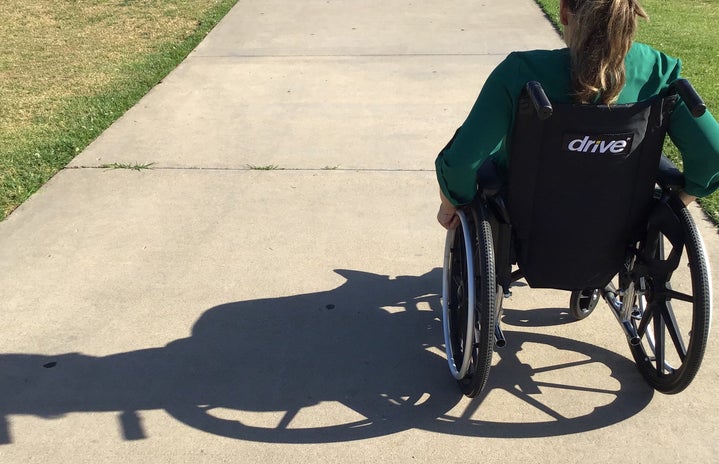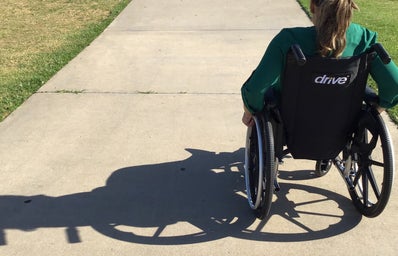With vaccines becoming more accessible, many universities have opted for an in-person approach to learning this school year. Life on Susquehanna University’s campus has adopted a new sense of “normalcy.” Although we still wear masks indoors, most buildings are back to full capacity and students are expected to go to classes regularly. However, few people have investigated how this shift to normalcy impacts certain groups, specifically the disabled.
I was diagnosed with POTS, a chronic illness that impacts your autonomic nervous system, during my junior year of high school. This basically means that I was doing online and hybrid learning long before the actual pandemic. In high school, I would go to school half days or go to class via video calls. What this means is that I have not had a full year of in-person education since my sophomore year of high school.
None of this really resonated with me until I got to campus to start my sophomore year of college. That is when I realized that being thrusted into in-person learning was something I really needed to adjust to. I am now on my third week of classes and there are a few things I have learned since going back to in-person school.
- College campuses were not built for the disabled body
-
During the worst portions of my illness, I was bound to a wheelchair for most of my daily activities. Although my health is doing much better and I do not need any mobility aids, I still catch myself thinking about where my wheelchair would and would not be accessible. The truth is no matter how “accessible” a college advertises itself to be, it most likely is lacking in certain areas. For instance, on most of my walks to class there are always a few steps that I must go up. Even though buildings have disability entrances, they are not accessible if the sidewalk has steps attached to them.
- Class schedules will not always be easy
-
A key factor of my illness is that I cannot always be on my feet for long periods of time. Therefore, walking to class is oftentimes a struggle. Many professors stress how important punctuality is to them, so I have found myself leaving super early for most of my classes. However, when you go to a small school like Susquehanna, there are not a lot of options when it comes to scheduling classes. Therefore, there is sometimes very little time between classes, which causes you to rush to from one building to the next. Most people can handle this, but for someone who has trouble walking in general, this is a huge obstacle.
- It will get exhausting having to explain your illness
-
Now that everyone is expected to reenter society, I have found myself having to explain my illness to more and more people. When the entire world was stuck on Zoom, I was able to go to everything from the comfort of my bed. This made my life easier because I didn’t have to anticipate if or for how long I would be standing. Now, I have to pace myself and accept the fact that I can’t do everything. Sometimes, I will have to cancel plans with friends or skip a club meeting because I cannot physically make it. Other times I will miss a whole class because of my POTS flaring up. All of these situations force me to retell my diagnosis over and over again. In all honesty, I wish that people would just accept the answer, “I have a disability.”
- It might seem hard, but you can do it
-
Going back to in-person schooling has brought about its own challenges, but I realize that each day I am getting stronger and more accustomed to campus normalcy. Sometimes my illness pushes me over, but I know that if I want to succeed, I need to get back up.
Since being back at Susquehanna, I have noticed more and more students with some form of a disability. I have seen students with canes or wheelchairs traveling across campus, and I have made several friends who struggle with some form of a disability. All these students are strong and deserve to be recognized for their dedication to their education. However, the able-bodied students and faculty must realize that there is still more to be done for SU’s disabled population. We are here. We deserve to be here. And we are not going anywhere (besides to our in-person classes).


